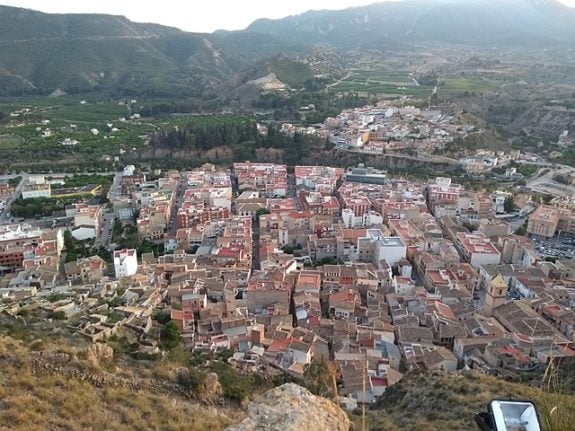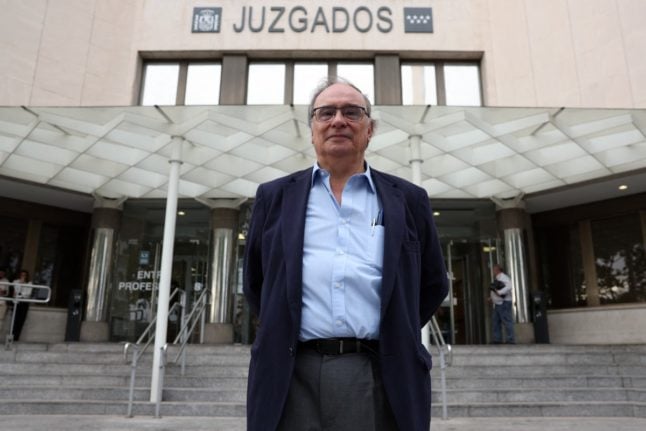The town of Blanca sits within the lush Ricote Valley, hemmed in by rocky mountains and surrounded by rivers and palm trees, but this hasn’t always been its name.
Located on the banks of the Segura River, the town has been inhabited for centuries, evident from the 12th-century Moorish castle that still looms over it. After the Reconquest, the town, known as Negra at the time, was occupied by the Order of Santiago.
READ ALSO: Did Spain make Coca-Cola before the US?
At the foot of the castle, the old part of the town still retains its medieval feel, with its tangle of narrow streets and historic buildings. Among these are the Church of San Juan Evangelista, built in 1508 on top of an old Mudéjar mosque, the baroque-style Ermita de San Roque, the neoclassical casa del Conde and the Teatro Victoria.
The town sits in a patchwork landscape between the contrasting orchards, water, and, mountains and the first theory states that it was originally called Negra because it was built on top of a subterranean water source named the Fuente Negra.
READ ALSO: The Spanish village where locals bet on where a donkey will poo
According to Turismo de Blanca, it was baptised this by the Arabs when they occupied the valley and many of them lost their lives during the capture.

The most widely accepted theory though is that it was named after the Peña Negra, the black volcanic rock, on which the town stands.
It was not until 1382, under the mandate of the Order of Santiago, that Negra was renamed Blanca.
There are several reasons for the change. The first is that Don Fabrique, Master of the Order of Santiago, had a close relationship with his sister-in-law, Queen Doña Blanca de Borbón, and wanted to name it after her.
The second is that when the bubonic plague, also known as the Black Death ravaged Spain, the town did not want to be associated with the name Negra or Black, in case people were scared to go there.
Whether it was changed so as not to be associated with the plague or named after Queen Doña Blanca de Borbón, the name Blanca has stuck some 641 years later.
Blanca lies a half-hour drive north of the capital of the region, Murcia city and an hour’s drive west of Elche in the Alicante province.



 Please whitelist us to continue reading.
Please whitelist us to continue reading.
Member comments